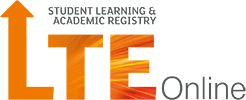Principles of Inclusivity
Individuals are supported to achieve their full potential through the provision of appropriate opportunities and the removal of barriers to enable the achievement of optimum performance. (TU Equal Opportunities Policy)
Universal Design for Learning (UDL) principles support the further development of inclusive practice that works for everyone, not a one-size-fits-all solution but rather flexible approaches and opportunities that can be customised and adjusted by individuals to meet their own needs.
Individuals have a wide variety of skills, needs, experiences and interests that influence their approaches to learning and with a UDL approach these are considered from three primary perspectives.
The ‘What’ of Learning
How we gather facts and categorise what we see, hear and/or read.
UDL principles are about offering multiple means of representation of materials to suit different learners.
For example:
- Consider alternative routes to accessing information relevant to the module outcomes.
- Present information in different ways and make available on the VLE in an appropriate time frame.
- To improve accessibility provide accessible resources in a modifiable format so learners can edit font, size, background etc.
- Record your teaching with ReView lecture capture software.
- Use of digital tools (FFL Toolkit) to support production of work and accessible formats.
- Provide an up-to-date reading list in advance.
The ‘How’ of learning
Planning and performing tasks. How we organise and express out ideas.
UDL principles are about offering multiple means to express learning.
For example:
- Flexible assessment methods – offering a variety of opportunities to assimilate and demonstrate skills and knowledge.
- Provide different levels of challenge direct learners to independent study resources.
- Promote active learning.
- Provide frequent knowledge checks.
- Support students to become reflective learners and to identify their effective learning strategies.
The ‘Why’ of learning
How learners get engaged and stay motivated. How they are challenged, excited or interested.
UDL principles are about offering multiple means of ‘engagement’.
For example:
- Ensure relevance, value and authenticity of course objectives.
- Provide motivating feedback and support students to become autonomous learners.
- Encourage learners to engage in research activities and to be co-producers of knowledge.
- Ensure learning is socially relevant and globally connected.
- Take into account learners’ backgrounds.
- Encourage students to think about their futures as they develop through their studies.
The adoption of a Universal Design for Learning (UDL) approach will assist Schools, Departments and the University to plan for diversity. It will support the creation of blended and flexible ways of learning and multi-modal activities and resources to empower learners to develop as learners both inside and outside the classroom.
Further Information on UDL
